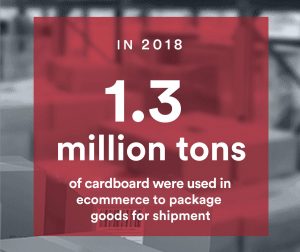The recent move to working at home and homeschooling means a significant rise in waste coming out of residential buildings, and while there isn’t concrete information on exactly how steep this rise will be, some sources suggest that it could be upwards of 30%.
 For municipalities attempting to keep waste management services running as close to normal as possible, and to ensure neighborhoods are kept clean and free of health risks, resources must be carefully managed. In many cases, this is possible thanks to the commitment of the waste industry’s essential workers and the communities in which they serve.
For municipalities attempting to keep waste management services running as close to normal as possible, and to ensure neighborhoods are kept clean and free of health risks, resources must be carefully managed. In many cases, this is possible thanks to the commitment of the waste industry’s essential workers and the communities in which they serve.
However, property managers may face bigger challenges than individual homes. For example, one challenge will likely be finding efficient and responsible ways to deal with waste increases in multi-family buildings. Additionally, ensuring residents are staying motivated to correctly sort, clean and separate waste will also become important to maintain the safety of the residents within the buildings.
Here, we look at commercial waste solutions designed to help property managers manage best practices as tenants comply with stay-at-home measures.
Dealing with trash efficiently
On-demand collections offer one solution for dealing with increased waste volumes, providing an additional outlet for excess materials when required. On-demand, in tandem with pre-scheduled collections, allows property managers to more easily manage resources. It also allows collections to be arranged according to need and directed to the locations that require responsive waste management solutions as materials build up.
 For example, as residents take advantage of extended time at home many are Spring cleaning and more bulk trash is being generated which must be dealt with in a timely manner. On-demand collections are the ideal solution to these “one-time” loads, and through cooperation with tenants, property managers can easily arrange collections for this kind of excess waste when it is required, coordinating everyone involved to ensure collections are made as conveniently as possible.
For example, as residents take advantage of extended time at home many are Spring cleaning and more bulk trash is being generated which must be dealt with in a timely manner. On-demand collections are the ideal solution to these “one-time” loads, and through cooperation with tenants, property managers can easily arrange collections for this kind of excess waste when it is required, coordinating everyone involved to ensure collections are made as conveniently as possible.
The online shopping effect
The effect of so many Americans being at home has, perhaps unsurprisingly, also led to surge in online shopping for food and essentials, as well as non-essential goods. Many products usually purchased online may have seen a sharp decline, however, they have instantly been replaced by products usually bought in grocery stores, health stores, and drug stores, among others.
 All of this means one thing—more packaging. Now, not only are property managers dealing with increases in product packaging, but also in delivery packaging. For example, in 2018 alone, 1.3 million tons of cardboard were used in ecommerce to package goods for shipment, and all of that cardboard takes up a lot of space.
All of this means one thing—more packaging. Now, not only are property managers dealing with increases in product packaging, but also in delivery packaging. For example, in 2018 alone, 1.3 million tons of cardboard were used in ecommerce to package goods for shipment, and all of that cardboard takes up a lot of space.
Property managers do have alternatives however, and avoiding health and safety issues, such as fire hazards, is particularly important as buildings are now constantly occupied. Dedicated dumpsters provide perhaps the most cost-effective solution, and these can easily be added to a building’s existing waste management operations. However, for property managers facing severe cardboard accumulation, cardboard balers may be a better option, helping residents to minimize the space taken by packaging in the building and reduce any associated risks.
Education and friendly reminders
When it comes to waste management and reducing waste materials, education is the most effective tool we have. For property managers, ensuring tenants are kept up to date with the fast-moving situation in their respective neighborhoods is important, allowing families and individuals to manage their own waste responsibly and conscientiously. Not only can education help residents to coordinate their waste disposal times, but it can also help be an effective tool in waste reduction.
 This means keeping residents aware of pickup times and days while informing them directly of special or on-demand collections for excess waste. Providing friendly reminders on how to separate and sort waste correctly in the home will ensure waste collection and recycling services can continue to operate efficiently. Additionally, pointing residents towards the latest information on how to deal with potentially infectious waste from households is crucial to protecting waste management workers while helping to mitigate the spread of the virus itself.
This means keeping residents aware of pickup times and days while informing them directly of special or on-demand collections for excess waste. Providing friendly reminders on how to separate and sort waste correctly in the home will ensure waste collection and recycling services can continue to operate efficiently. Additionally, pointing residents towards the latest information on how to deal with potentially infectious waste from households is crucial to protecting waste management workers while helping to mitigate the spread of the virus itself.
With the help of waste management companies, property managers can easily ensure waste is efficiently collected and distributed to the correct facilities, either through on-demand or scheduled pickups. For more information on the current situation in your area, and for details on how RTS can help, contact us today.
We’re committed to keeping waste management services running a smoothly as possible during these difficult times, and we’re on hand to provide guidance and advice for property managers in locations across the US.

